When it comes to skincare, we take ingredients very seriously. We need all the tea about oils, serums, gels, washes, or any given product for that matter, before it becomes a part of our skincare routine. With so many products and options on the market, it’s hard to navigate and decipher exactly what works for our skin without extensive research—and a lot of trial and error usually occurs.
But what if we told you that there’s a vitamin that can target a number of skincare issues and has a multitude of benefits for every skin type? No—it’s not an ingredient that’s difficult to pronounce and yes, it’s easily found in a number of your favorite skin care products formulated by your favorite brands. Retinol, a form of vitamin A, functions far beyond just a vitamin that promotes healthy skin, but also has nutritional value throughout the inside of your body as well.
Skincare equals self-care which is why we spoke with three expert estheticians to debunk all things retinol, to find out exactly what this multifunctional vitamin does, and how it can improve the health of our skin.
What is retinol?
Retinol, also known as a derivative of vitamin A, is an FDA approved ingredient which as explained by Lily Njoroge, Head of Education at Topicals, is indicated for the treatment of wrinkles fine lines and acne. It’s also is proven by anecdotal data to alleviate hyperpigmentation. “Retinol is a precursor to retinoic acid, which is the bioavailable form of vitamin A within our body,” Njoroge says. “All retinols must convert to retinoic acid through a two step oxidation process that essentially allows our skin to ‘use’ the retinol by making it bioavailable. Once it’s become bioavailable, retinol impacts the skin’s keratinocytes, a cell found in the outermost layer of the skin, by increasing proliferation (the rate at which our skin cells multiply) and eventually shedding to reveal new, healthy skin cells.”
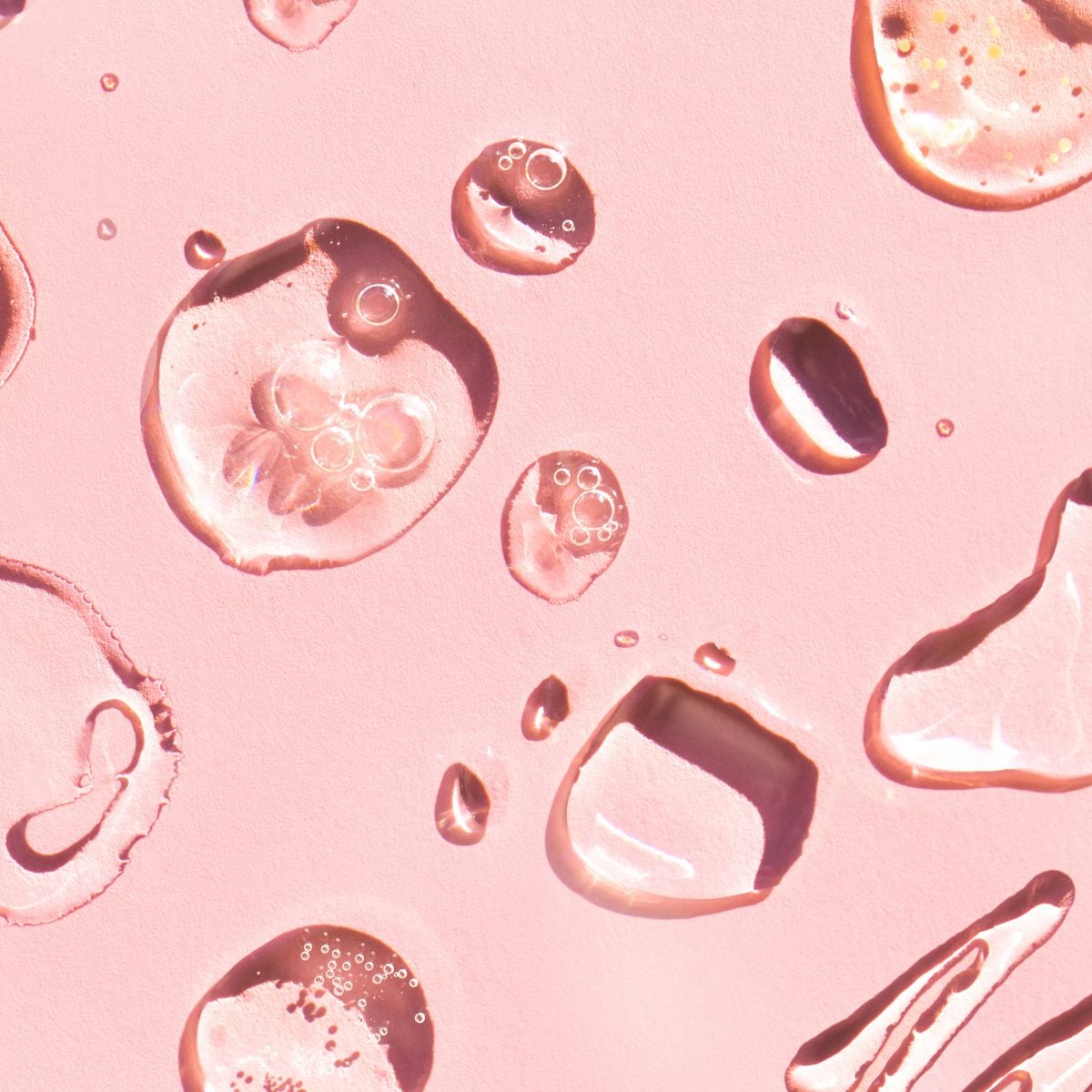 Top view of blots and smears of various lotions and gels spread on pink background. Beauty product of the year
Top view of blots and smears of various lotions and gels spread on pink background. Beauty product of the year
Essence Moore, Licensed Esthetician and Owner of Lineage Skin and Hair Studio in New York City reminds us that different retinol products contain retinol at various concentrations, and use different delivery systems to help with product efficiency. Depending on your skin’s current state you’ll be able to gauge which products may work best, and choose products with concentrations of retinol that meet your skin exactly where it’s at.
What are the benefits of retinol?
Incorporating retinol, or any form of vitamin A into your skincare routine, can benefit your skin in many ways. “Retinol is used to treat skin concerns such as acne, hyperpigmentation and aging skin,” Moore further explains. Vitamin A is a source of nutrients that can work wonders for your body, inside and out. Certified Esthetician and owner of Eve Milan NY, Eden Gilliam, adds that “Vitamin A helps with everything from reproductive health to acne. Retinol in particular helps the skin’s turnover process thus improving the skin’s texture.”
When it comes to who can benefit from using retinol, the answer is: almost everybody. According to Njoroge, not everyone is a candidate and some of its many benefits might actually be detrimental for some. “For people with sensitized skin or compromised barriers, atrophic skin, eczema and rosacea, retinols can be quite pro-inflammatory and overly aggressive on the skin in these cases. If retinol is used under the wrong conditions, it can cause retinoid dermatitis, which can manifest as redness, peeling, burning and stinging, itching and edema in some more severe cases.” However, this doesn’t mean that all skin types aren’t eligible to use retinol—it just takes knowing your skin enough to know if it’s too sensitive to handle such an ingredient. If this is the case for your skin, Eden Gilliam recommends going for a natural retinol alternative like Bakuchiol.
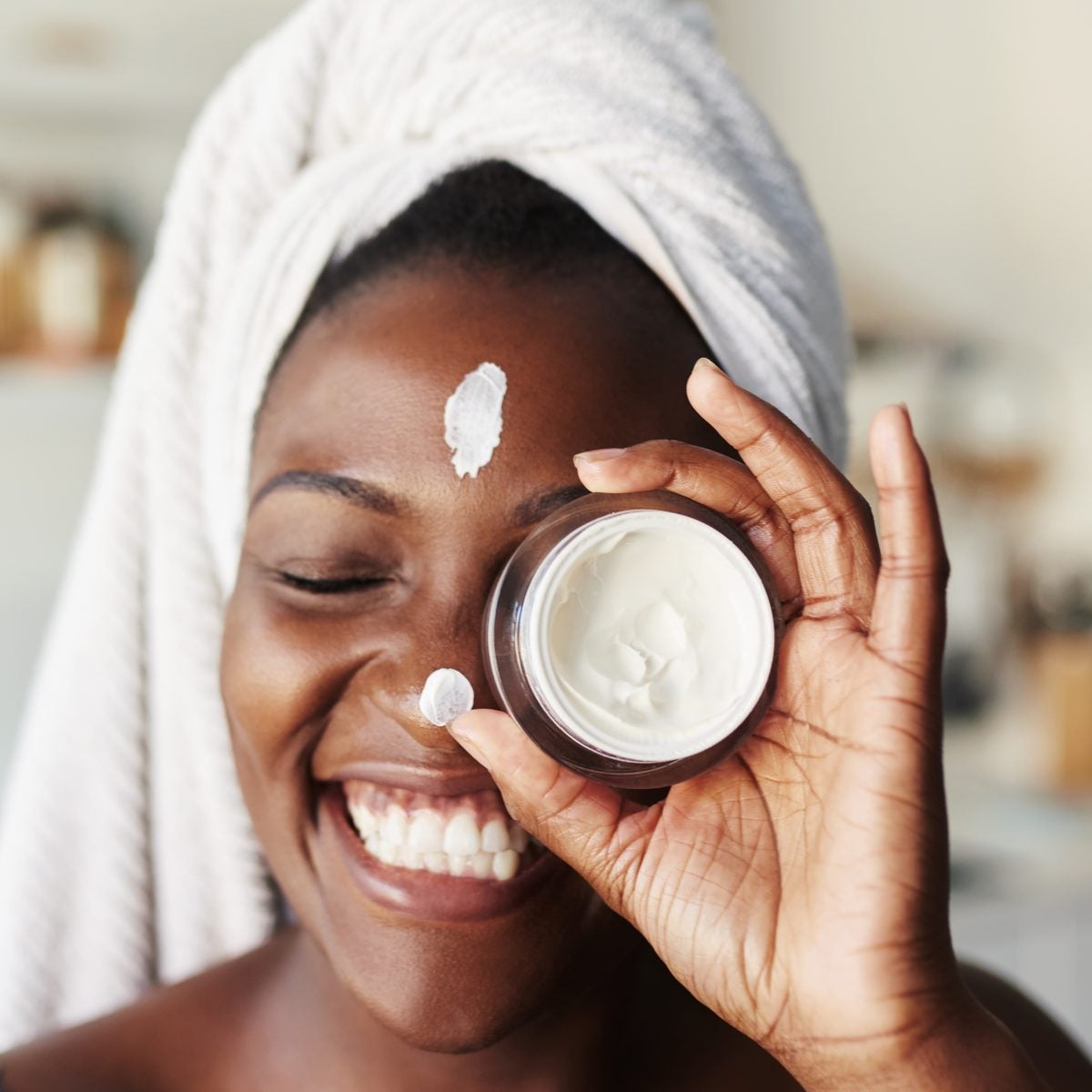 Shot of a beautiful young woman holding up a face cream product
Shot of a beautiful young woman holding up a face cream product
Another added benefit of using retinol is that it’s safe and very effective for Black skin. “It does not bleach, but it can assist in the improvement of post inflammatory hyperpigmentation, which disproportionately affects skin of color,” adds Njoroge. Gilliam also agrees that retinol works beautifully with melanated skin and helps to alleviate skin congestion. “Using a retinol is fine, we just have to make sure we are also using a good sunscreen as well as a great skin hydrator. The key to healthy melanated skin is to balance between proper exfoliation and skin hydration,” she concludes. Gilliam’s word of advice: Pair your retinol products with a great skin moisturizer to maintain a healthy balance of hydration. “When it comes to retinol the key is to start off slow and allow your skin to build up tolerance.
How can you incorporate retinol into your skincare routine?
Retinol can be found in a number of products or concentration forms depending on the skin concerns you’re targeting. If you’re interested in introducing retinol into your routine, Njoroge suggests trying PCA Intensive Clarity Treatment to regulate acne concerns or the PCA Intensive Brightening Treatment to target hyperpigmentation and dullness. In addition, Gilliam says right now she’s loving Shani Darden’s Retinol Reform.
01Drunk Elephant A-Passioni Retinol Cream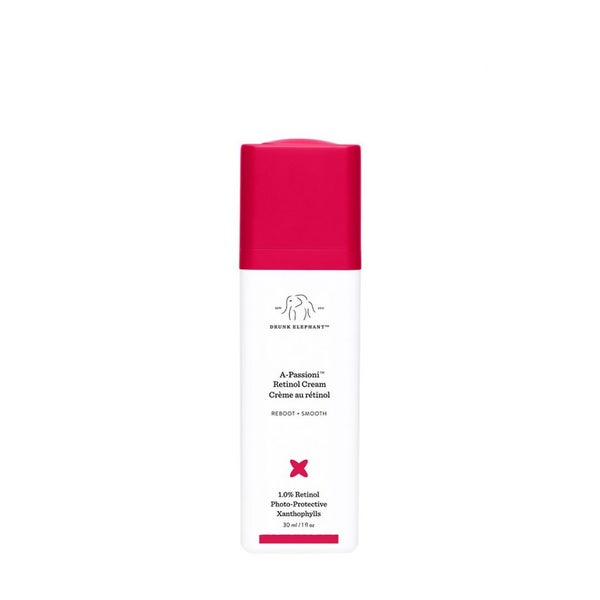 Drunk Elephant available at Drunk Elephant $74 02Acne Expert Skincare Brightening Cream
Drunk Elephant available at Drunk Elephant $74 02Acne Expert Skincare Brightening Cream 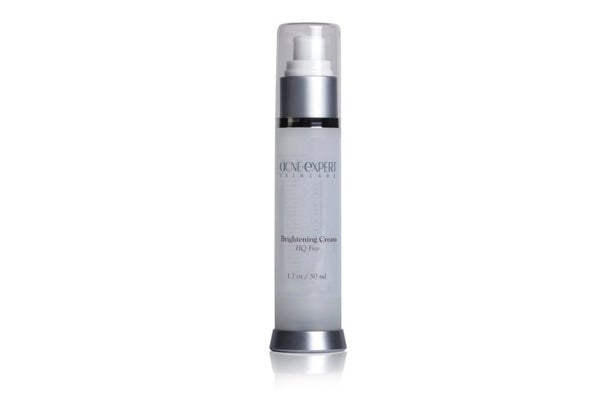 available at Acne Expert Skincare $59 03The Ordinary Granactive Retinoid* 2% Emulsion
available at Acne Expert Skincare $59 03The Ordinary Granactive Retinoid* 2% Emulsion 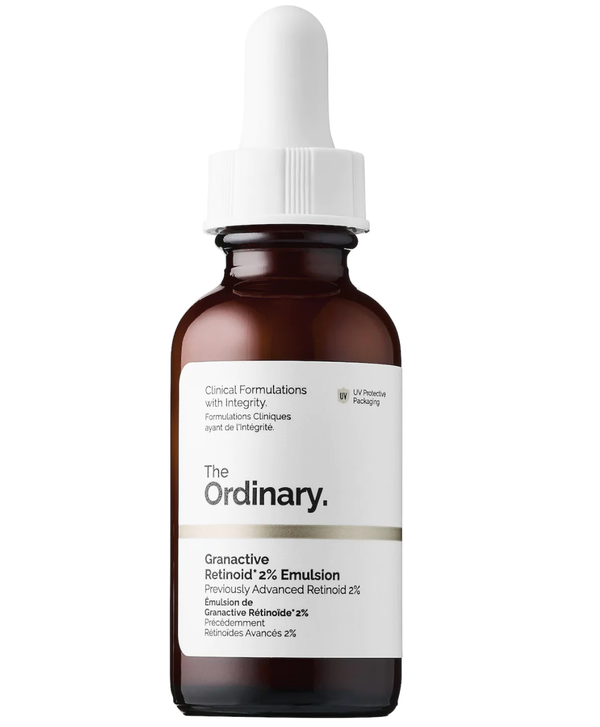 The Ordinary available at Sephora $10
The Ordinary available at Sephora $10
TOPICS: retinol skincare skincare for Black women
The post Here’s What You Need To Know Before Adding Retinol Into Your Skincare Routine appeared first on Essence.


0 Commentaires